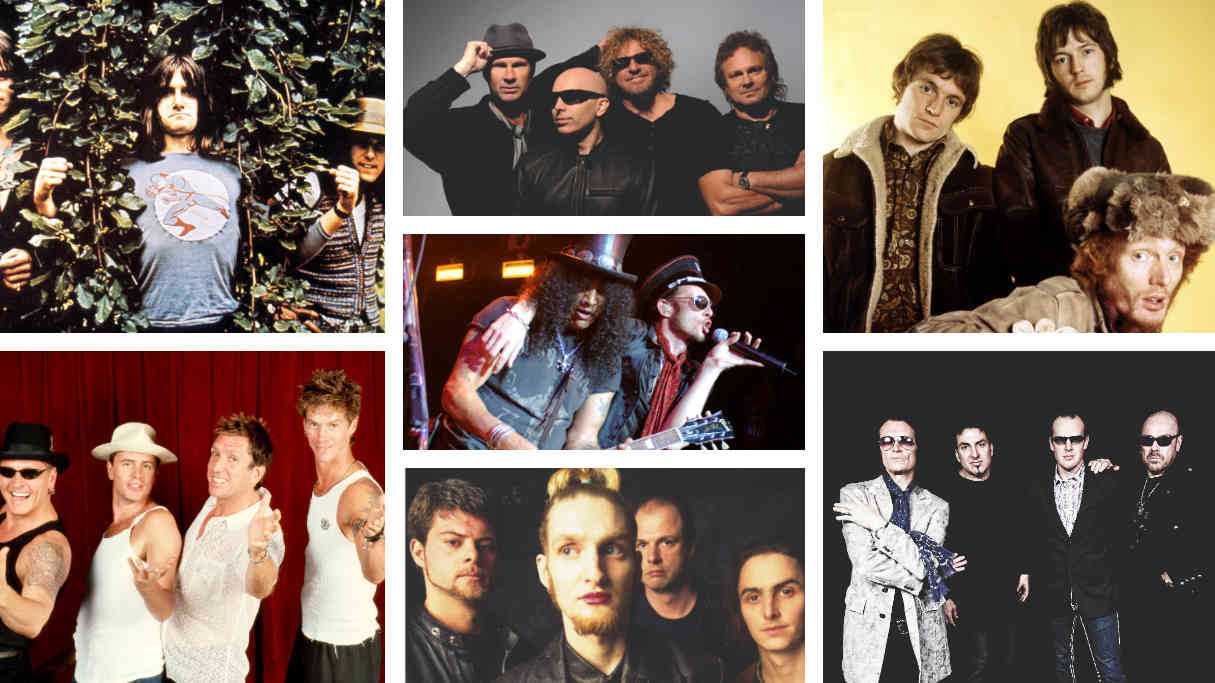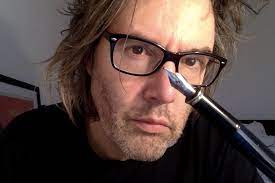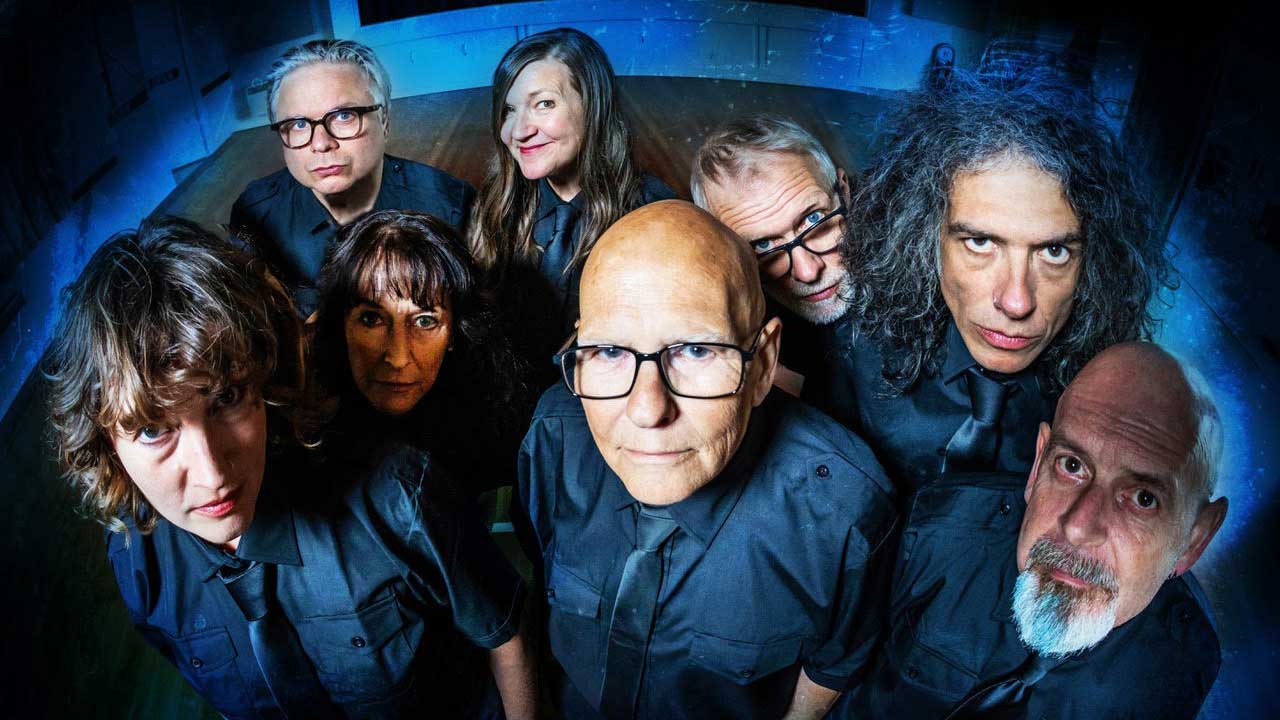The 20 greatest rock supergroups ever
From Cream and ELP to Temple Of The Dog and Velvet Revolver, these are history’s greatest supergroups

Select the newsletters you’d like to receive. Then, add your email to sign up.
You are now subscribed
Your newsletter sign-up was successful
Want to add more newsletters?

Every Friday
Louder
Louder’s weekly newsletter is jam-packed with the team’s personal highlights from the last seven days, including features, breaking news, reviews and tons of juicy exclusives from the world of alternative music.

Every Friday
Classic Rock
The Classic Rock newsletter is an essential read for the discerning rock fan. Every week we bring you the news, reviews and the very best features and interviews from our extensive archive. Written by rock fans for rock fans.

Every Friday
Metal Hammer
For the last four decades Metal Hammer has been the world’s greatest metal magazine. Created by metalheads for metalheads, ‘Hammer takes you behind the scenes, closer to the action, and nearer to the bands that you love the most.

Every Friday
Prog
The Prog newsletter brings you the very best of Prog Magazine and our website, every Friday. We'll deliver you the very latest news from the Prog universe, informative features and archive material from Prog’s impressive vault.
The supergroup has been a staple of rock since the mid-60s – there have been great ones, good ones, and ones that should never have gotten out of the rehearsal room. The very best are those with that alchemical x-factor that comes from a combination of fame, glamour, novelty and pure talent. The great supergroups are rarely built to last, but even the ones that crash and burn as soon as they get off the ground can often leave an indelible mark on music history. From AOR big hitters to blues rock superstars, here are the 20 greatest rock supergroups ever

20. GTR
Two iconic prog guitarists named Steve – Genesis’s Steve Hackett and Yes’s Steve Howe – joined forces for this short-lived mid-80s supergroup. With journeyman singer Max Bacon, ex-Marillion drummer Jonathan Mover and crack session bassist Phil Spalding in tow, they released just one album, the surprisingly unproggy, AOR-tinged GTR (1985), even breaking into the US charts with the single When The Heart Rules The Mind. But the dissolution of the their label and Hackett’s increasing disinterest put paid to longer term plans.
19. The Power Station
Big hair, big egos, music slick as an oil spill, The Power Station were the most 80s supergroup ever. Featuring Duran Duran’s (non-related) John and Andy Taylor, former Chic drummer Tony Thompson and besuited pop-rock lothario Robert Palmer, they were groovy, funky and fuelled by the spirit of the age. Their self-titled 1985 debut album, home to hit Some Like It Hot, was the perfect encapsulation of yuppie-era swagger and smarm that made everyone who listened to it feel like they’d just got back from New York’s swankiest nightclub. They released a second album a decade later that nobody remembers.
18. Neurotic Outsiders
Duran Duran’s John Taylor (him again!) was back in action in the mid-90s with this blink-and-you-miss-it supergroup, originally named The Neurotic Boy Outsiders and also featuring fellow rock A-listers/rehab refugees Steve Jones, Duff McKagan and Matt Sorum. Their solitary, self-titled 1996 album still sparkles, even if they should never have covered The Clash’s Janie Jones.
17. The Damned Things
The Damned Things were an unlikely combination, featuring members of thrash icons Anthrax, emo poster boys Fall Out Boy and metalcore ragers Every Time I Die. But this Frankenstein’s Monster of a supergroup delivered a pair of unexpectedly great albums (2010’s Iconoclast and 2019’s High Crimes), that melded metal’s power to hard rock melody.
16. HSAS
Bad English (see below) wasn’t Journey guitarist Neal Schon’s only extra-curricular group. Like some early 80s hard rock Avengers, the short-lived HSAS saw him Schon team up with Sammy Hagar, Kenny Aaronson and former Santana drummer Michael Shrieve. Adopting their initials for the worst band name to chant out loud on this list - did no one think of calling it Sash? – they managed one mostly live record in the rather excellent Through The Fire, and then they were gone.
15. The Raconteurs
The early 00s success of The White Stripes gave Jack White free reign to do whatever he wanted. One of the things he opted for was to team up with fellow singer and guitarist Brendan Benson and a couple of members of Detroit garage rockers The Greenhornes in The Raconteurs (or The Saboteurs if you lived in Australia, where there was already a band under that name). Their first two (excellent) albums, 2006’s Broken Boy Soldiers and 2008’s Consolers Of The Lonely, were belatedly followed up by strangely overlooked 2019’s Help Us Stranger, though they’ve been quiet since.
Sign up below to get the latest from Classic Rock, plus exclusive special offers, direct to your inbox!
14. Bad English
Featuring former members of Anglo-American pop-rockers The Babys (singer John Waite and keyboard player Jonathan Cain) and AOR gods Journey (guitarist Neal Schon and Cain again), Bad English briefly towered over the US charts like Godzilla dominating the Tokyo skyline. Fusing classic hard rock power and soaring ballads, their self-titled 1989 debut made a whole nation simultaneously punch the air and weep. For one album only though: their second and final, Backlash, was a certifiable stinker.
13. Transatlantic
Prog has never been short of supergroups, but Transatlantic are pretty much the most popular all-star union of the last 25 years. Featuring members of Dream Theater, Marillion, Spock’s Beard and The Flower Kings, their five albums to date lean into crack musicianship, epic songs and widdly solos, while their live shows feature more showing off than an eight-year-old’s birthday party. Their fifth album, 2021’s 96-minute concept opus The Absolute Universe, is reportedly their last, but we’ll believe that when we see it.
12. Blind Faith
Eric Clapton loves a good supergroup, as Derek And The Dominos and Cream (more on them later) prove. Blind Faith – a starry late-60s collective featuring Clapton and ex-Cream bandmate Ginger Baker, former Traffic singer Steve Winwood and Family bassist Rich Grech – went from zero to 60 and back again in less than a year. While they never truly reached their full potential, their lone, self-titled album is great, if you can ignore its notoriously ill-advised cover.
11. Chickenfoot
Hot off the back of selling his Tequila company for squillions of dollars, Sammy Hagar decided that he was bored of waiting for estranged bandmate Eddie Van Halen to call him and launched his own party-rock band, Chickenfoot. Roping in guitar wizard Joe Satriani and Red Hot Chili Peppers drummer Chad Smith, what could easily have been a charmless, millionaire’s hobby band turned out be a whole lot of fun, as their two albums, 2009’s Chickenfoot and 2011’s confusingly-titled Chickenfoot III proved. Sadly, attempts to resurrect it have come to nothing, which is a pity.
10. The Highwaymen
Featuring an A-list Nashville line-up of Johnny Cash, Willie Nelson, Waylon Jennings and Kris Kristofferson, The Highwaymen were the Mount Rushmore of country music brought to life. Their stately 1985 debut album brought a little outlaw spirit to that glossy decade, and they followed it with two more records over the next 10 years, though with Jennings and Cash long gone, a reunion isn’t going to happen.
9. Mad Season
The Seattle grunge scene has had no shortage of supergroups over the years, but Mad Season were the only one that came out of a rehab stint. Formed by Alice In Chains’ Layne Staley and Pearl Jam guitarist Mike McCready, and featuring members of local legends Screaming Trees and The Walkabouts, they managed just one album, the gloomy yet stately Above, before falling apart. The deaths of Staley and bassist – as well as ex-Screaming Trees frontman Mark Lanegan, who replaced Staley in an aborted attempt to resurrect the band in the late 90s – only adds to their dark mystique.
8. Travelling Wilburys
Never have a bunch of super-famous millionaire rock stars seemed to be having so much fun as the Travelling Wilburys. Formed by ex-Beatle George Harrison and ELO major domo Jeff Lynne during the sessions for the former’s 1987 album Cloud Nine, the pair called in Bob Dylan, Tom Petty and Roy Orbison to record an album, 1988’s Travelling Wilburys Vol.1, that fizzed with playful bonhomie (a second album, 1990’s contrarily titled Travelling Wilburys Vol.3, was released after Orbison’s death).
7. Them Crooked Vultures
Resurrecting the classic power trio format for the modern age, this late 2000s group found Queens Of The Stone Age’s Josh Homme and chief Foo Fighter Dave Grohl living out their fanboy fantasies by luring ex-Led Zeppelin bassist John Paul Jones back into the spotlight. With Grohl taking his rightful place behind the drumkit, their sole, self-titled 2009 album mixed psychedelia, grunge and alt-rock to killer effect. They toured it, but things went dark soon after and have stayed that way since – though a brief reunion at 2022’s Taylor Hawkins tribute concerts in London and LA raised hopes of a second album.
6. Black Country Communion
Formed after a jam session between ex-Deep Purple bassist/vocalist Glenn Hughes and modern blues guitar king Joe Bonamassa, and lent extra firepower by Jason ‘Son Of John’ Bonham and keyboard payer Derek Sherinian, Black Country Communion brought early 70s blues rock into the 21st century. After four well-received but sporadically released albums, they recently announced that they’ve reunited for a fifth. Happy days!
5. Asia
Their members may have done time in King Crimson, Yes, ELP and The Buggles, but Asia hit gold with the polished hard rock of their self-titled 1982 debut album. Singer and bassist John Wetton wryly said, “We were so famous in America at one point that builders used to hang off scaffolding to shout at me… I rather enjoyed it.” A string of albums with one-word titles beginning and ending in ‘A’ followed, albeit to diminishing returns, though Heat Of The Moment remains a cast-iron classic.
4. Velvet Revolver
It was always going to end in tears, but for two albums, but Guns N’ Roses/Stone Temple Pilots mash-up Velvet Revolver were a more electrifying proposition than whatever incarnation of GN’R Axl Rose was dragging round the world. Scott Weiland’s glam-rock cosplay perfectly suited Slash and Duff McKagan’s hard rock showboating, as evidenced on such classics as Fall To Pieces and Slither.
3. Temple Of The Dog
It was the drug-related death of Mother Love Bone singer Andrew Wood that inspired his former roommate, Soundgarden frontman Chris Cornell, to put to together Temple Of The Dog. Featuring former MLB guitarist Stone Gossard and bassist Jeff Ament – then of the newly-formed Pearl Jam – alongside Soundgarden drummer Matt Cameron and PJ guitarist Mike McCready, the group’s 1991 debut album was a brooding yet oddly uplifting tribute to a fallen friend. And in the stirring Hunger Strike, it introduced to an unknown singer named Eddie Vedder to the world.
2. Emerson, Lake And Palmer
Strange to think of ELP as a supergroup, given the way their music dominated the first half of the 1970s, but that’s exactly what they were – Keith Emerson, Greg Lake and Carl Palmer were members of The Nice, King Crimson and Atomic Rooster respectively before they decided to throw their lot in together and help lay the foundation stones for progressive rock.
1. Cream
Eric Clapton had made his name as the mid-60s era’s pre-eminent guitar god in The Yardbirds and John Mayall & The Bluesbreakers, while bassist/vocalist Jack Bruce and drummer Ginger Baker were faces on the mid-60s London scene. As Cream, they conjured the kind of magic that can’t be manufactured, releasing in three pivotal albums in four years, influencing an entire generation of musicians and changing the very DNA of rock in the process. It flamed out amid egos, acrimony and bitterness, but they remain the yardstick by which all other supergroups should be judged.
Philip Wilding is a novelist, journalist, scriptwriter, biographer and radio producer. As a young journalist he criss-crossed most of the United States with bands like Motley Crue, Kiss and Poison (think the Almost Famous movie but with more hairspray). More latterly, he’s sat down to chat with bands like the slightly more erudite Manic Street Preachers, Afghan Whigs, Rush and Marillion.

